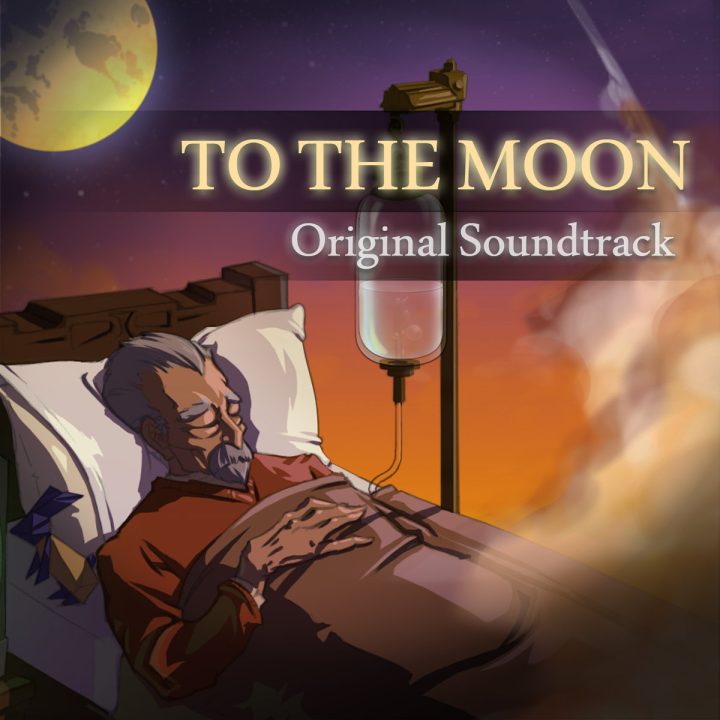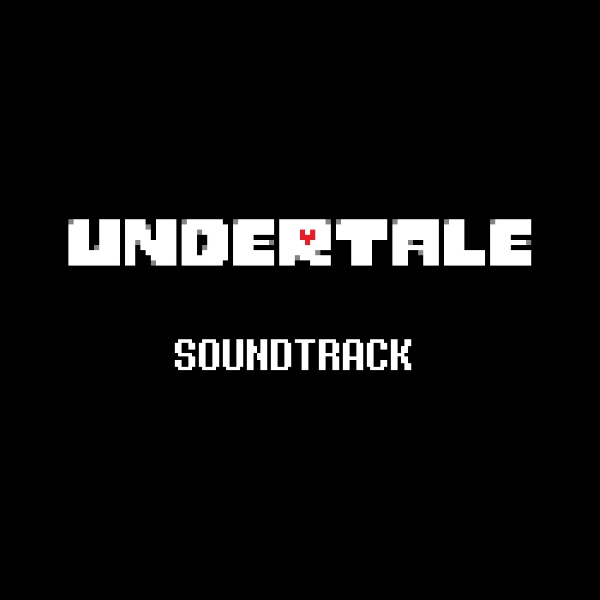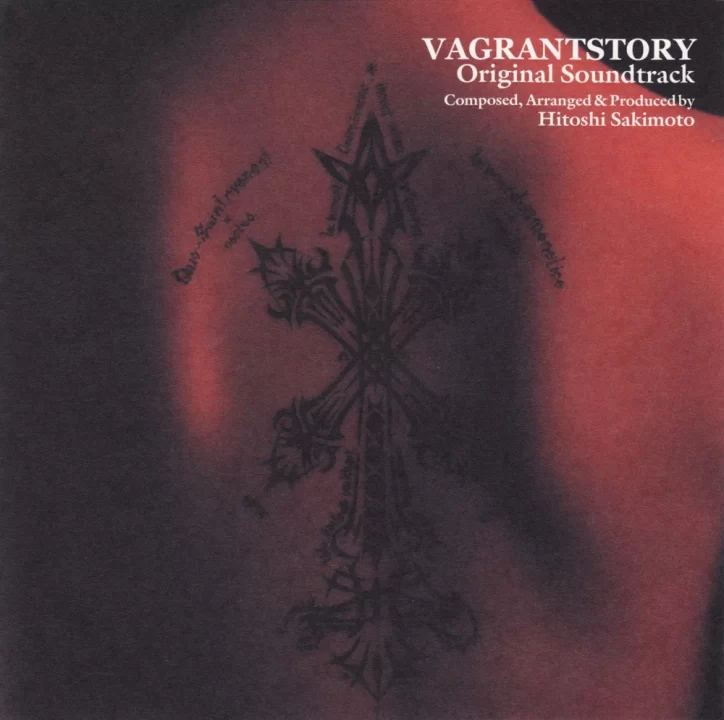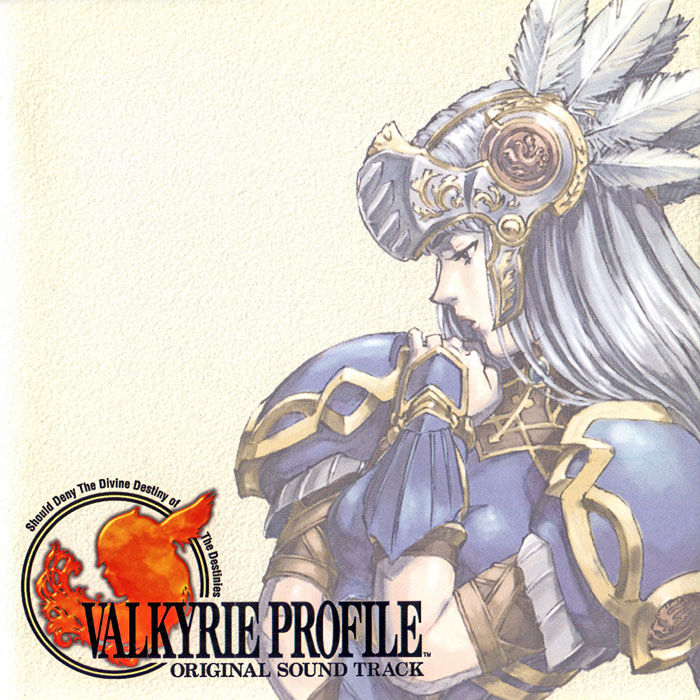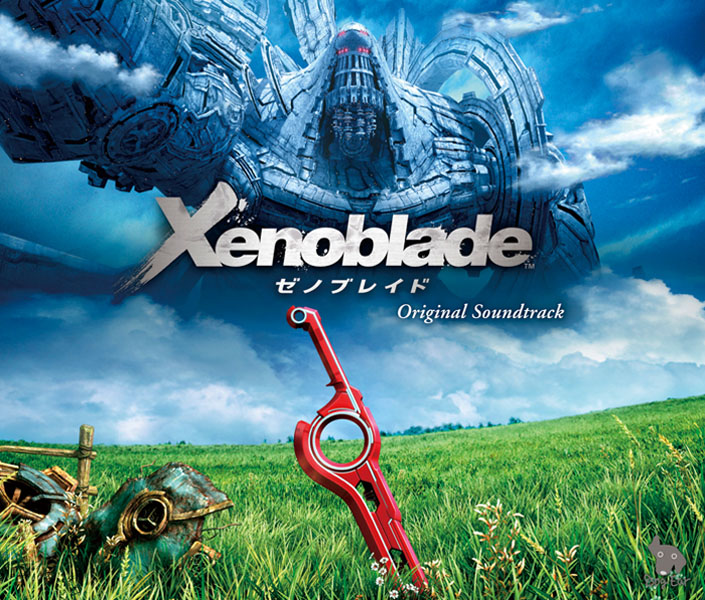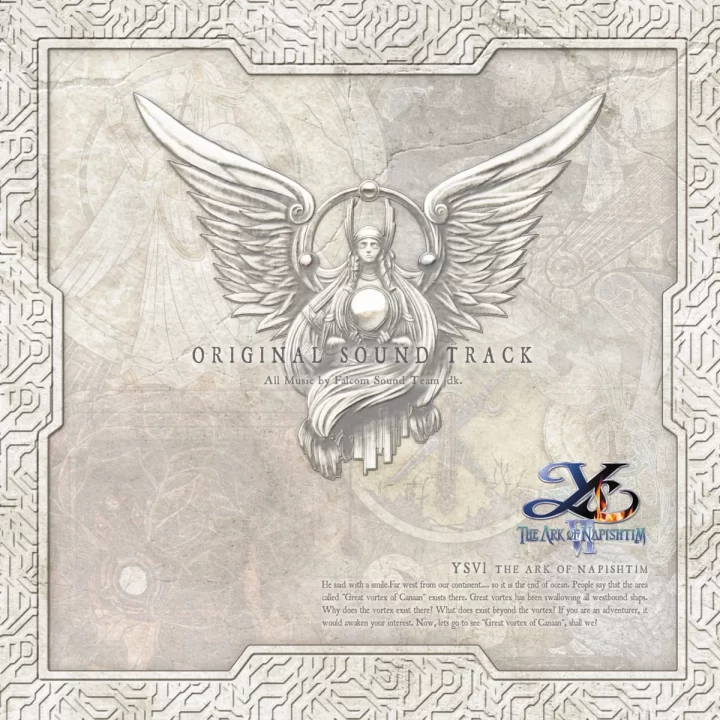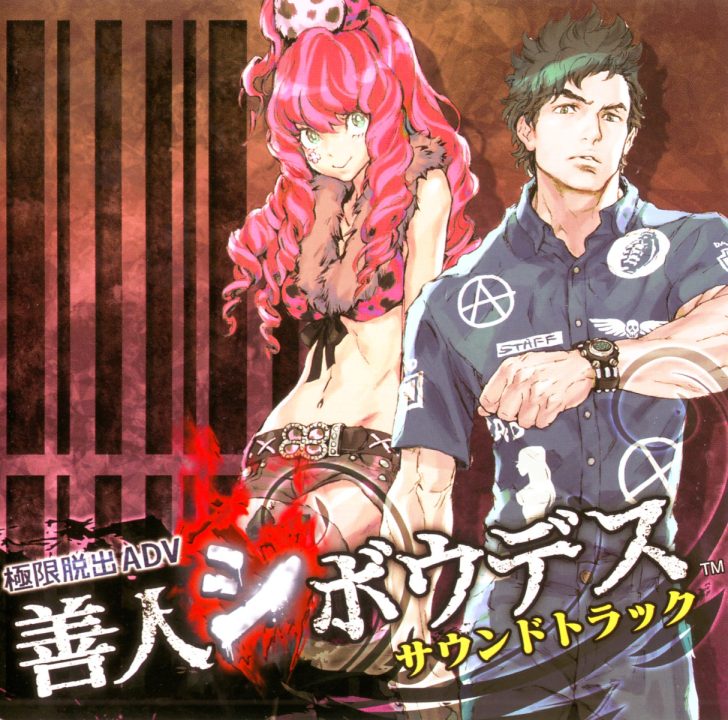Soundtrack review: Genso Suikoden II Original Game Soundtrack Complete
18. Suikoden II
“The heart has its secret currents: deep, and without guide.”
The above lyric comes from the song “Currents,” found on the Suikoden II arrange album Orrizonte, with an upbeat rearrange utilized for the Visual Novel Genso Suikogaiden Volume 1’s opening movie. However, this beautiful English-language piece was originally an Italian vocal found within Suikoden II itself. The song, “Due Fiumi ~Two River~,” is a perfect renaissance style song that stands as one of the highlights of the full Suikoden II soundtrack.
Much like Napple Tale‘s two volumes, Konami published this soundtrack in two two-disc sets. However, a limited edition complete set also exists, which I was fortunate enough to grab hold of decades ago. But the only difference is a large slipcase for the two jewel cases to fit into, so you’re not missing much springing for the separate volumes.
Across four discs, composer Miki Higashino followed up on her work on the first Suikoden with what may well be her magnum opus. Indeed, this phenomenal composer seemed to step away from game music after this incredible work, leaving Norikazu Miura and others to take the reins for the remainder of the series.
As I recall, many fans lamented Higashino’s apparent disappearance, and I can understand why. There hasn’t been a soundtrack pulling at the heartstrings quite like Suikoden II. From the lamentation of the opening track, “Reminiscence,” to the soft, if slightly foreboding, “Her Sigh,” this OST is an emotional tour de force. There’s the harrowing anxiety in the dungeon theme “Labyrinth,” the simple relief of “Moonlit Night,” and the intense baroque-EDM fusion of “Gothic Neclord.” Utilizing relatively primitive synthesizers for the PS1 generation, Higashino focused squarely on the basics of composition: melody, harmony, rhythm, and instrumentation/voicing. Truly, this is an unforgettable collection of music.
Soundtrack review: To the Moon Original Soundtrack
19. To the Moon
As I began writing this block of text, I pulled up “Everything’s Alright” on my playlist, and before Laura Shigihara had even begun to sing, the tears began to well up in my eyes. Such is the emotive power of To the Moon, game and soundtrack.
Arguably, creator and composer Kan “Reives” Gao made equally strong entries in follow-ups Finding Paradise and Impostor Factory. I think, for me at least, what makes To the Moon stand out is that it was the first in its series, and it came seemingly out of nowhere. A game this smart, with story and music written by the same person, and with the power to catch the attention of so many gamers, well, it sounds a little bit like our next entry.
Until then, I offer a quick reminder that sometimes all you need is a piano and some string ensemble pads on your keyboard to make something transcendent, something lasting, something worth celebrating. Across this soundtrack, tunes like “To the Moon Main Theme,” “For River,” “Having Lived,” “Born a Stranger,” and “Once Upon a Memory” demonstrate how little a composer really needs to build something shining and wonderful. And yes, of course, “Everything’s Alright” will hold a special place in our hearts forever.
“Until the stars all fall down, they empty from the sky, but I don’t mind / If you’re with me, then everything’s alright.”
If that doesn’t hit you right in the feels, play the game, and you’ll come to understand.
Soundtrack review: Undertale Soundtrack
20. Undertale
I’m going to keep this one extra short. Just as I said regarding NieR: Automata… if you aren’t familiar with Undertale and its music, for your own sake, please make the time to look into it. Even my mother knows familiar tracks from Undertale (“Megalovania,” “Snowy,” “Death by Glamour,” “Asgore”) solely by their use in TikTok memes.
As with To the Moon, the composer for Undertale is also the game’s creator. Toby Fox, a name you have likely heard by now, is a prodigy, a wunderkind. He was only 24 years old when he published Undertale. The extensive soundtrack to this unique RPG runs over two hours in length across 101 tracks. Alongside scattered, simple incidental tracks, there are absolutely unforgettable tunes. My personal favorite is the Toriel battle theme, “Heartache.”
Of course, there are dozens, perhaps hundreds, of licensed and fan-made arranged albums and singles based on the Undertale soundtrack. There was even an official orchestral concert of the OST from start to finish in Japan for the game’s fifth anniversary. Undertale isn’t just a game. It’s a realm all its own. And the music you’ll find in this realm is some of the best I’ve ever heard. Now, if you’ll excuse me, I need to go listen to my custom playlist of “Heartache” arrangements on a loop.
Soundtrack review: Vagrant Story Original Soundtrack
21. Vagrant Story
This is a good time to note the way in which this list is skewed: Square releases from the year 2000 (in North America). In that year alone, we had some of the best PS1 RPGs, and among those games, I have named the soundtracks to Chrono Cross, Legend of Mana, SaGa Frontier 2, and now Vagrant Story. Four out of my 25 total came from one company in the same year. I have no regrets. It was just a great year.
This beautiful soundtrack comes to us courtesy of Hitoshi Sakimoto, founder of music team Basiscape. He and his team are celebrated for the Ogre Battle / Tactics Ogre series and all Ivalice games (Final Fantasy Tactics, Final Fantasy XII, and Vagrant Story). But of all these, there is perhaps no soundtrack as consistent in its soundscape as Vagrant Story, and I think this is because this was a Sakimoto solo project.
There are so many highlights to this amazing soundtrack. The unforgettable prologue cutscene music “Graylands Incident Climax,” which clocks in at nearly 12 minutes, is one of the most wonderful cinematic pieces Sakimoto has ever written. Then there is the motif found in both “Joshua” and “Truth,” which underscore some of the most emotionally compelling scenes not only in this game, but perhaps all the games in Square’s PS1 library.
Sakimoto maintained an impressive balance between the softer pieces (whether creepy-ambient or melodic and piano-driven) and the stronger pieces (often utilizing booming percussion and synth orchestra) throughout the full OST. It is a great listen from start to finish.
And, yes, when I had the opportunity to meet Sakimoto-san, you had better believe this is the soundtrack I asked him to sign.
Soundtrack review: Valkyrie Profile Original Soundtrack
22. Valkyrie Profile
I ran into something funny as I was doing research for this list. In my review of this soundtrack’s PSP reissue, Valkyrie Profile -Lenneth- Original Soundtrack, I stated that I slightly preferred the soundtrack to Star Ocean: The Second Story over Valkyrie Profile. These two soundtracks were published just over one year apart (late 1998 for SO2, early 2000 for VP), and somehow, composer Motoi Sakuraba acted as the sole composer for both of these phenomenal tri-Ace titles. I suppose my tastes have changed over time. Among Sakuraba’s enormous body of work, I have concluded that I find Valkyrie Profile the most engaging.
If you know Sakuraba, you probably know what you’re in for here. The slow songs feature plenty of harp and choir, and the upbeat stuff is prog-rock heaven. There’s the complex time signature during the intro section of “Confidence in the domination.” There’s the discotheque organ vibes of “Constructor, There Was Light.” There’s the sweet simplicity of “Behave irrationally.” And, of course, there’s the opening overture, “Epic Poem to Sacred Death,” an unforgettable piece if ever Sakuraba wrote one.
Alongside this album and Star Ocean: The Second Story (as well as its recent remake OST), Sakuraba fans should take a look at a spiritual successor to VP whose soundtrack nearly made it on this list: Exist Archive.
Soundtrack review: Xenoblade Original Soundtrack
23. Xenoblade Chronicles
More than any other franchise on this list, I was nearly grief-stricken when trying to narrow down my Xeno pick. I opted against including Xenogears after giving Mitsuda the spotlight in both Chrono titles and having heavy representation of the PS1 era. In Xenosaga, I was frustrated by the lack of consistency despite there being some amazing tunes in all three volumes, whether Mitsuda’s volume one or Yuki Kajiura’s second and third volumes. So it came down to Xenoblade Chronicles, even if that meant I still had three entries to choose from, plus the underdog in the Xenoblade Chronicles X soundtrack (from Attack on Titan composer Hiroyuki Sawano).
Finally, I settled on the first game. This landmark title featured a handful of great tunes from Yoko Shimomura (mentioned earlier in Legend of Mana), and the ending theme “Beyond the Sky” written by Yasunori Mitsuda. But most of the soundtrack comes from relative newcomers, lesser-known names in the industry: Manami Kiyota and the three-person “ACE+” team (Tomori Kudo, CHiCO, Kenji Hiramatsu). It was precisely this breath of fresh air to the Xeno series that sent Xenoblade into fantastic musical uncharted territory.
Seriously, this soundtrack is just chock full of energy. From rock-infused themes like “Engage the Enemy” to the frenetic rockestral piano and strings found in “Unfinished Business,” the soundtrack just doesn’t let up… well, except for when it does. Y’know, for the sad, emotional pieces. You’ll find some darker tear-jerkers in tracks like “Regret,” “Thoughts Enshrined,” and “Once We Part Ways.”
This is truly a different type of soundtrack than what I expected after having enjoyed previous Xeno OSTs. But I have to hand it to the first Xenoblade Chronicles for trying something new, with new people, and making it work. Had this not happened, the remaining soundtracks in the trilogy may not have been nearly as high quality as they are.
Soundtrack review: Ys VI: The Ark of Napishtim Original Soundtrack
24. Ys VI: The Ark of Napishtim
Me, make a top 25 list and fully neglect Falcom? I don’t think so!
Perhaps it’s blasphemy that I picked an Ys title over the Trails series. And, even among Ys fans, perhaps it’s blasphemy that I rank Ys VI so highly over others. In truth, I can think of at least three other Ys soundtracks that nearly rival this one.
It came down to a decision of personal preference, as a handful of musical themes put this one over the top for me. The first bit of overworld music, “Quatera Woods,” is a favorite. I never tire of it. The strange mix of sharp electronica with beautiful violin overtures in “Ultramarine Deep” pull me in every time. The jazz-funk fusion of “Windslash Steps” feels like it could be its own vocal theme (and sure enough, it is one of the vocal themes on the fantastic vocal album The Songs of Zemeth). “Overwater Drive” has all the beauty of “Ultramarine Deep” with sweet synthesized callbacks to some of the best dungeon themes from Ys I & II.
And let’s not forget “The Ruined City Kishgal.” Oh goodness gracious, this four-on-the-floor EDM theme serves as the game’s final dungeon theme, and it is just a wild choice. Ys lore fans should also take note of this track title and how wonderfully Ys VI ties back to the series’ roots in ways that later entries tend to avoid.
Oh, and how could I celebrate a Falcom publication without noting the glorious battle themes? The opening FMV track, “Release of the Far West Ocean,” fits as an honorary theme all its own, but the key ones to listen to here are “Mighty Obstacle,” “Ernst,” and “The Depth Napishtim.”
Like many other Falcom soundtracks, you can stream this whole OST on YouTube or Spotify or purchase it digitally on Apple Music / iTunes. So what are you waiting for?! Enjoy!
Soundtrack review: Kyokugen Dasshutsu ADV Zennin Shibou Desu Soundtrack
25. Zero Escape: Virtue’s Last Reward
We come to the end with a celebration of Shinji Hosoe, one of the true greats of game music who got his start with Namco in 1987, composing for arcade and early home console titles. I believe his abilities as a musician have only improved with time. His themes for the classic arcade game Ridge Racer are iconic. His (unpublished) contributions to Xenosaga Episode II are clever as hell. His battle themes for the Folklore soundtrack are frenetic. But it was in Kotaro Uchikoshi’s Zero Escape trilogy that I feel he truly came into his own.
I almost selected 999: Nine Hours, Nine Persons, Nine Doors over Virtue’s Last Reward because of a single track. No, not “Morphogenetic Sorrow” — that beautiful theme is reworked and becomes the “Virtue’s Last Reward” main theme, found in orchestral and piano forms as bookends for this soundtrack. No, I’m referring to “Ternary Game,” one of the smoothest electronic grooves Hosoe has ever written. I had to give it a shout-out since I’m crowning VLR king over 999.
Now, what makes Zero Escape: Virtue’s Last Reward so darn good? I’ll admit it’s not for everyone. Sometimes the music gets so wild, and so atonal, that one might struggle to call it music, preferring to call it “sound” or “noise.” The key puzzle theme, “Ambidexterity,” has moments of this in between clear melodic sections. Tracks like “Decompression” and “Data” are also very noisy. They’re great, and they’re rhythmic as can be. They just aren’t everyone’s cup of tea, and I get that.
On disc two, the “story side” of the OST, we find more tonal, melodic pieces to enjoy. For those who have played the game, “Placidity” and “Strain” will be instantly recognizable as they are two of the most commonly used tracks throughout the game. Some striking moments from this half of the OST include “Confession,” “Clarification,” “Demise,” and “Blue Bird Lamentation.”
Alongside my belief that anyone who enjoys games should play the entire Zero Escape trilogy, I hope that fans will take time to celebrate its great music, particularly the pinnacle compositions in Virtue’s Last Reward. Get on it!
Honorable Mentions
All of these soundtracks had a real shot of making my top 25, but barely missed the mark. They are, nonetheless, noteworthy.
- .hack//G.U.
- Ar tonelico
- Atelier Ayesha
- Atelier Ryza
- Bastion
- Bravely Default
- Breath of Fire: Dragon Quarter
- Cosmic Star Heroine
- Danganronpa
- The Dark Spire / Genmu no Tou to Tsurugi no Okite
- Digital Devil Saga 1 & 2
- Disgaea
- EarthBound / Mother 2
- Etrian Odyssey (esp. II and III)
- Ever17
- Exist Archive
- Final Fantasy (all of them)
- Final Fantasy Adventure / Seiken Densetsu
- Front Mission
- Grandia I & II (see Deus and Povo)
- Kingdom Hearts (esp. II and Birth by Sleep)
- The Legend of Heroes: Trails in the Sky
- The Legend of Zelda: The Wind Waker
- LIVE A LIVE
- moon
- NieR: Replicant
- Night in the Woods
- Octopath Traveler + Champions of the Continent
- Parasite Eve
- Persona Series
- Phantasy Star IV
- Phoenix Wright: Ace Attorney – Trials and Tribulations / Gyakuten Saiban 3
- Pokémon Scarlet & Violet
- Romancing SaGa 3
- SaGa Frontier
- Sakura Wars / Sakura Taisen (series)
- Secret of Mana
- Shin Megami Tensei III
- The Spirit Engine 2
- Star Ocean: The Second Story
- Steins;Gate
- Tactics Ogre
- Tales of Symphonia
- Terranigma / Tenchi Souzou
- Valkyrie Profile 2: Silmeria
- Wild ARMs
- Xenoblade Chronicles 2 & 3
- Xenogears
- Xenosaga Episode I, II, and III
- Ys (Origin, I&II, III/Felghana, VIII)



